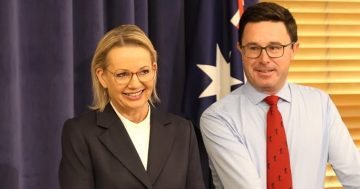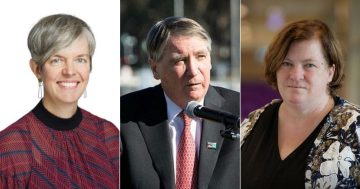Kari Lyderson* says a scientific voyage to Antarctica helped highlight the particular challenges facing aspiring indigenous women leaders.

Photo: Homeward Bound
Amidst icebergs and glaciers and under an overcast sky on the Antarctic Peninsula, youth forensic psychiatrist and Maori health practitioner, Hinemoa Elder leads a group of 100 women in a Māori song.
“Te aroha, te whakapono, me te Rangimarie, tatou tatou, e.”
Elder travelled to Antarctica as part of the largest all-female expedition to the frozen continent: women in science, technology, engineering, maths and medicine (STEMM) fields brought together by the Australia-based initiative Homeward Bound.
The song the women sang was a tribute to Lilly Marie Taylor, a young Māori scientist who had also been chosen to be part of the group.
Taylor had begun fundraising for the voyage but died of a suspected suicide in January 2019.
Elder says that getting to know Taylor, and then losing her, increased her own motivation to help aspiring female scientists who do not have easy access to academic careers.
“Mental illness affects women of every social strata, and science is no different,” Dr Elder says.
“There’s a lot of pressure on women, especially Māori women, to be all things to all people.”
Elder said she felt it was important to continue assisting and mentoring young women and advocating for institutions to better understand and provide for their needs.
Experiencing the harsh yet fragile majesty of Antarctica with women from around the world exploring their own life transitions and hopes of making a difference in the world helped Elder develop her plans and goals, including the potential creation of a centre for Māori leadership.
“It underscored the mental health impact of the planetary emergency and at the same time, the potential for building wellbeing by getting more involved in activities that contribute to improving the status of the emergency.”
For a year before the journey to Antarctica, the women — from more than 30 countries — attended intensive workshops meant to help them understand and potentially shift their own leadership styles.
Elder noted that Māori leadership can be very different from Eurocentric or mainstream corporate styles and understanding and incorporating indigenous leadership practices would be of great benefit to any society.
Inaction by political leaders was very much on the women’s minds during the voyage especially in relation to climate change.
They professed grief and anger and also voiced frustration that so much science shows the effects of climate change, yet political leaders continue to be apathetic.
Homeward Bound brings women to Antarctica because it is the last largely pristine wilderness on earth.
Antarctica is also among the places where climate change’s impacts are strongest and most critical.
Elder says there needs to be greater connection between the internationally accepted, peer-reviewed scientific arena that many of her Homeward Bound colleagues inhabit, and the realm of Māori science and wisdom.
“We have had to learn to understand the colonising society, but there has not been the same imperative for the colonisers to understand our culture,” Dr Elder says.
“We are trying to find our own voice through our research and express our worldview, our wisdom.”
“As part of this process we’ve interrogated the idea of science and data and evidence.”
“Indigenous cultures say we have our own science, have our own knowledge systems, but Western science doesn’t necessarily allow our science into their realm.”
Many of the women on the Antarctic trip emphasised the legacy and current struggles of indigenous people throughout the program and called for more indigenous participants in future Homeward Bound voyages.
“All my life, I’ve been a strong advocate for having a voice for the environment, having a voice for wildlife, having a voice for nature, and then I realised another voice wasn’t being heard: First Nations people,” said Ingrid Albion, a marine biologist, interpretation and education officer for Tasmania’s Parks and Wildlife Service.
“And that was people being most impacted by climate change.”
“That’s where I thought I need to create change and I need to be involved in raising the voice of all people.”
Elder recited a Māori proverb that encompassed the same themes expressed by other women: commitment to fighting for a more sustainable world, appreciation for nature and solidarity with women and all people around the world.
“I am a descendant of Mother Earth, I acknowledge Mother Nature, the Ocean, the Earth, the Sky. The reeds can be broken if they grow singly, but they are stronger if they grow together.”
* Kari Lydersen is a reporter and lecturer and Interim Director of the Social Justice News Nexus Project at Medill University in Chicago.
This article first appeared at www.stuff.co.nz.




